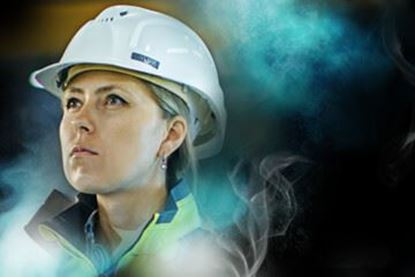You have no items in your shopping cart.
All Courses
Preventing Slips, Trips and Falls (Spanish)
A lo mejor, el resbalar y tropezarse termina ser vergonzoso. A menudo lleva a esguinces y torceduras. En el peor de los casos causa lesiones serias o incluso la muerte. La prevención de resbalones, tropezones y caídas es fácil, pero muchas veces se ignora en la rutina diaria de finalizar el trabajo de manera rápida y eficiente. Este curso define los resbalones, tropezones y caídas y detalla cómo puede evitarlos.
$29.95
Process Safety Management: Incident Investigation (US)
Companies that are subject to the Process Safety Management (PSM) regulations are required to investigate each incident that resulted in, or could have resulted in, a catastrophic release of highly hazardous chemicals in the workplace. This course illustrates the importance of investigating incidents and communicating incident reports internally to ensure that similar incidents do not occur in the future. Topics in this course include: Types of Incidents, Investigation Plan, Investigations, Collecting Data, Causes, Corrective Actions, and Incident Report. In this course, learners will learn about the different types of incidents that must be investigated, when incidents should be reported, how to prepare incident reports, how to uncover root causes, and how to establish an effective system to implement corrective actions.
$29.95
Radiofrequency (RF) Training
Radiofrequency (RF) is an invisible energy that we use in most wireless equipment and devices, such as those for communication and heating. Although it has many important uses, RF energy also has risks that you need to understand and avoid. Take this course to learn what RF energy is, where you may find it, its hazards, how to avoid them and what to do if you've been overexposed. This course is ideal for anyone who may be exposed to RF energy.
$29.95
Recognizing Electrical Hazards Awareness
This course explains how and why electricity is dangerous so that employees may recognize when hazards are present. It is intended for workers in all industries.
$29.95
Reporting (Data Entry)
How do you document details about what you discover during observations and incident investigations? One effective way is reports! Take this course to learn about report benefits as well as the characteristics of good reports. Ideal learners are managers, supervisors and safety committee members.
$29.95
Resource Conservation and Recovery Act (RCRA) Parts 1-2 (US) (IACET CEU=0.1)
The Resource Conservation and Recovery Act (RCRA) places controls on the management of hazardous waste from its generation to its ultimate disposal. Whenever you generate hazardous waste and accumulate it on-site, you must take the necessary precautions and steps to prevent any sudden or accidental release into the environment. Take these courses to learn about hazardous waste determination and the actions to take to stay safe if your facility or organization produces, disposes of or accumulates hazardous waste. Ideal learners are supervisors, managers and workers who generate or manage hazardous waste.
$29.95






